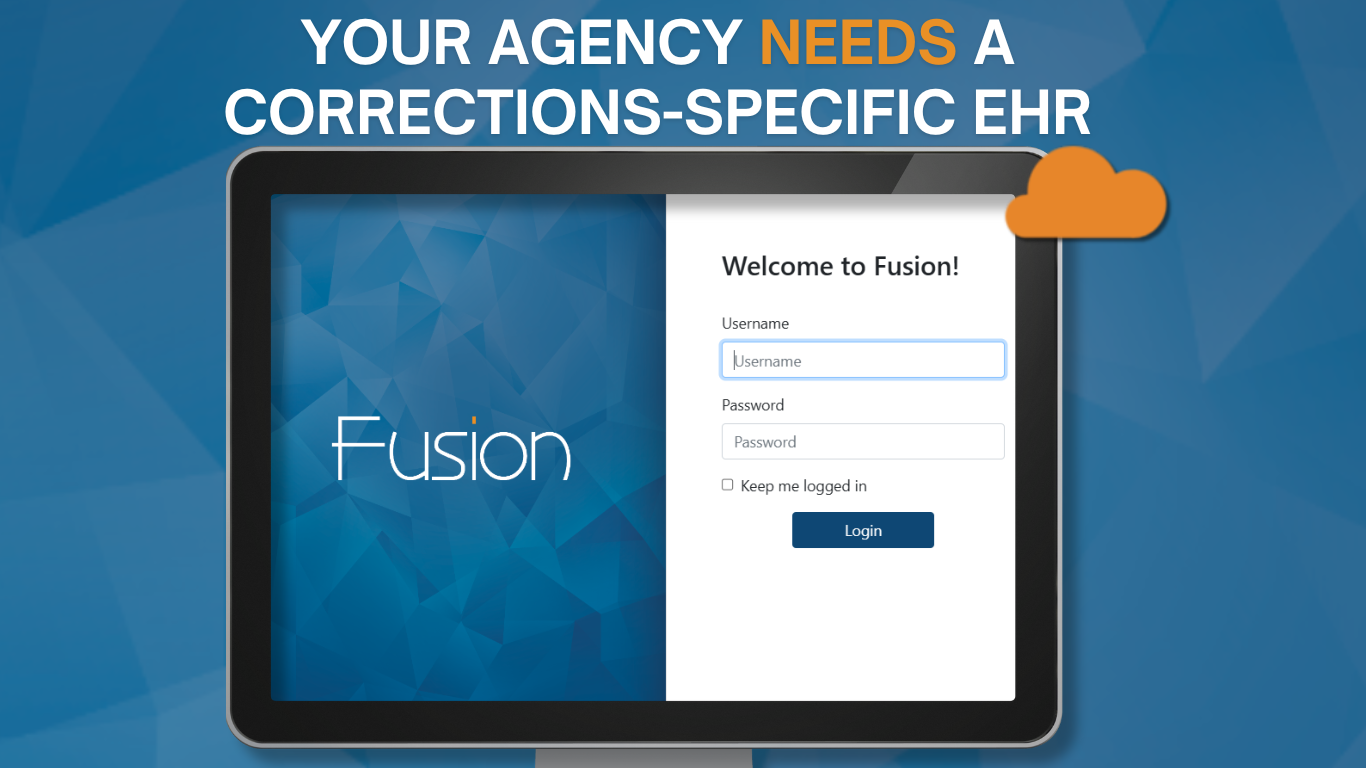Healthcare within sheriff’s departments, jails, detention centers, and juvenile justice facilities is uniquely complex. These environments require specialized tools to meet their demanding needs. One such tool is corrections-specific electronic health records (EHRs), which are essential for managing the distinctive challenges and enhancing the quality of care in these facilities.
Understanding the Unique Challenges
Correctional facilities, including jails and detention centers, house a diverse population with complex healthcare needs. These needs often include chronic illnesses, mental health issues, and substance abuse disorders. Unlike general healthcare settings, these environments require systems designed to navigate the intricacies of correctional healthcare:
- Mental Health Integration: Mental health conditions are prevalent among inmates. Corrections-specific EHRs integrate mental health records seamlessly, providing healthcare professionals with a comprehensive view of an inmate’s health history. This ensures better diagnoses and more effective treatment plans.
- Substance Abuse Management: Tailored tools for tracking and managing substance abuse history and treatment progress are crucial. They support rehabilitation programs within sheriff’s departments and ensure care continuity.
- Chronic Disease Management: These EHRs come with specialized modules to help manage chronic diseases like diabetes and hypertension, ensuring consistent and effective treatment across the board.Mental Health Integration: With a high prevalence of mental health conditions among inmates, corrections-specific EHRs integrate mental health records seamlessly. This integration provides healthcare professionals with a comprehensive view of an inmate’s health history, ensuring more accurate diagnoses and effective treatment plans.
- Substance Abuse Management: Tailored tools for tracking and managing substance abuse history and treatment progress are vital. These tools support rehabilitation programs within sheriff’s departments and ensure continuity of care.
- Chronic Disease Management: Specialized modules support the ongoing care and management of chronic diseases, such as diabetes and hypertension. This consistency ensures effective treatment across the facility.
Why Corrections-Specific EHRs Are Essential
The implementation of corrections-specific EHRs in jails and detention centers is crucial for overcoming the challenges of correctional healthcare. These systems offer several key benefits that address the specific needs of these environments:
Enhancing Security and Compliance
Security and compliance are paramount in correctional healthcare settings, where sensitive information must be rigorously protected:
- Robust Security Features: Corrections-specific EHRs provide role-based access control. This ensures that only authorized personnel within the sheriff’s department or jail can access sensitive health records. Additionally, detailed audit trails enhance security by tracking who accessed or modified records and when.
- NCCHC and ACA Compliance: Adhering to National Commission on Correctional Health Care (NCCHC) and American Corrections Association (ACA) standards is critical for maintaining accreditation. Corrections-specific EHRs incorporate workflows and features that align with these guidelines, helping facilities meet stringent compliance requirements.
Streamlining Operations
Operational efficiency is a significant concern in correctional facilities, such as detention centers and jails, where resource constraints and administrative burdens are common:
- Automated Workflows: Automated scheduling and medication management reduce the administrative workload. This allows healthcare staff to focus more on delivering quality care.
- Data Analytics and Reporting: Advanced data analytics and real-time reporting capabilities enable administrators to make informed decisions. They can optimize resource allocation and identify health trends within the inmate population more effectively.
Facilitating Continuity of Care
Continuity of care is essential for maintaining inmate health, particularly as individuals move between facilities or re-enter society:
- Inter-Facility Data Sharing: Secure sharing of health records between facilities, including jails and detention centers, ensures that healthcare providers have access to a complete health history. This facilitates seamless care transitions.
- Community Re-Entry Programs: When inmates are released, corrections-specific EHRs support the transfer of health records to community healthcare providers. This ensures that treatment continues uninterrupted and reduces the risk of recidivism.
The Pitfalls of Not Using a Corrections-Specific EHR
FaciFacilities that rely on general EHR systems face numerous challenges and inefficiencies:
- Fragmented Care: Without proper integration of mental health and substance abuse records, care becomes fragmented. This fragmentation increases health risks for inmates.
- Security Vulnerabilities: General EHR systems may lack the robust security features necessary to protect sensitive inmate health information, leading to potential data breaches.
- Operational Inefficiencies: The absence of automated workflows and analytics can result in administrative overload, errors, and delays in care delivery.
- Continuity of Care Disruptions: Inadequate data-sharing capabilities hinder the smooth transition of health records. This affects the quality of care when inmates transfer between facilities or reintegrate into the community.
Conclusion: Why Corrections-Specific EHRs Are Essential
In the demanding environment of correctional healthcare within sheriff’s departments, jails, and detention centers, the adoption of corrections-specific EHRs is not just advantageous but essential. These systems are designed to address the unique challenges and nuances of providing healthcare in these settings. They enhance care quality, improve security, and ensure compliance.
At Fusion, we are committed to delivering tailored EHR solutions that meet the specialized needs of correctional facilities. We empower healthcare providers to deliver the best possible care.
For more information on how FusionEHR can revolutionize your facility’s healthcare management, visit our website at FusionEHR.com.
READY? LET’S CONNECT
Ready to implement an EHR that truly meets the demands of correctional healthcare? Contact Fusion today to explore how our specialized EHR solutions can transform healthcare delivery in your facility.

